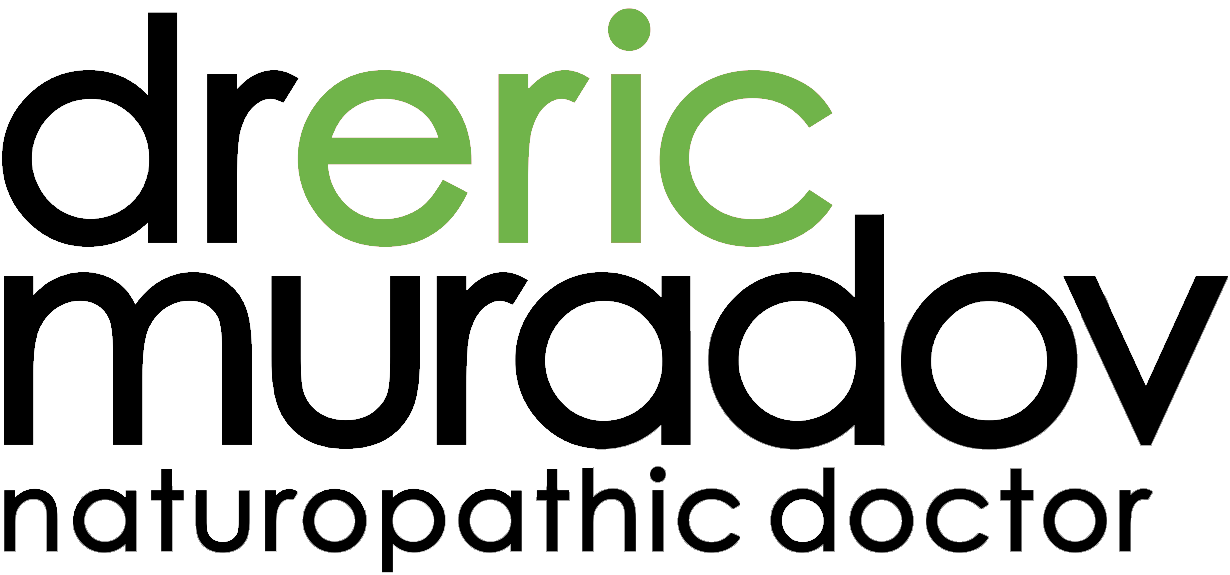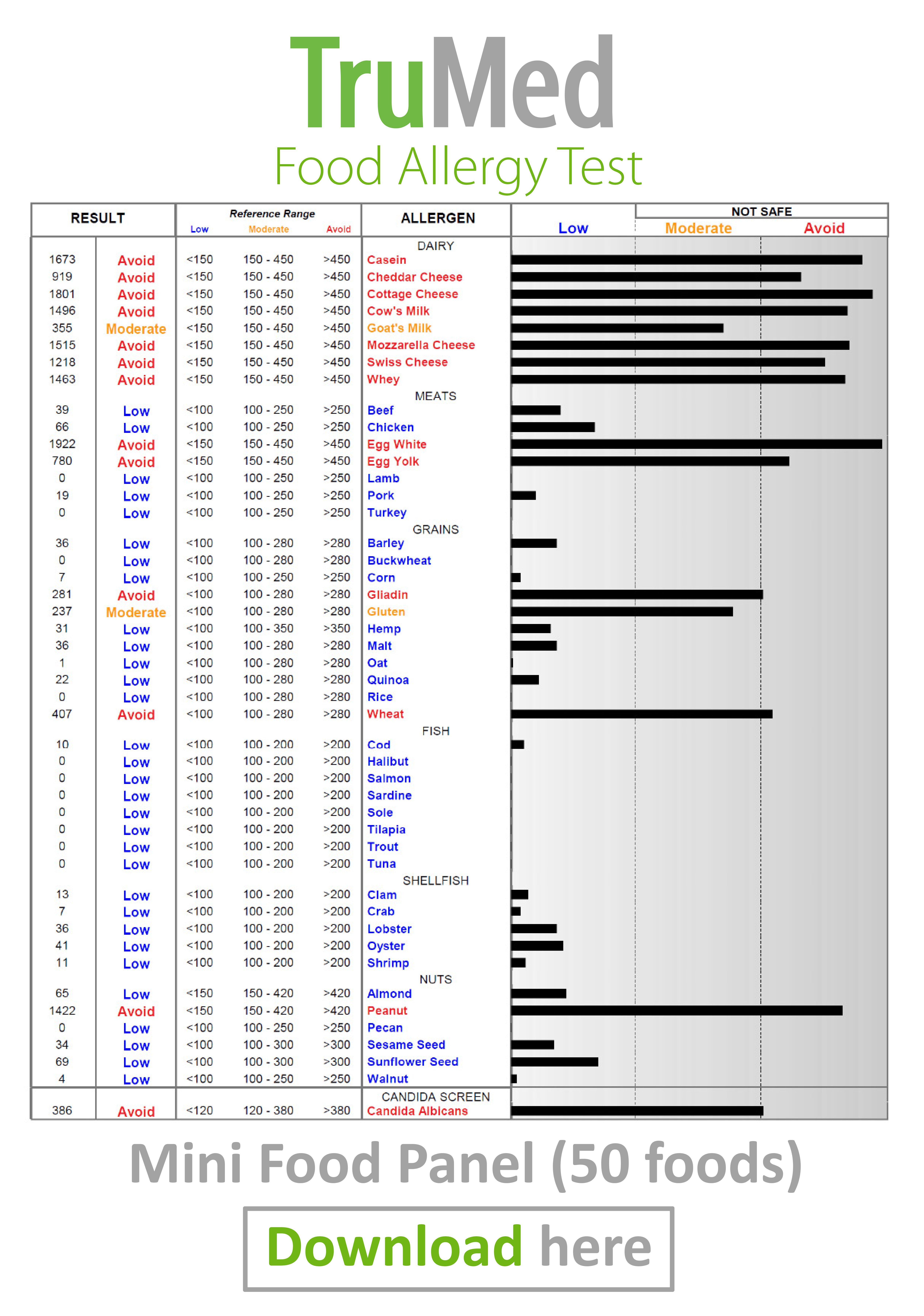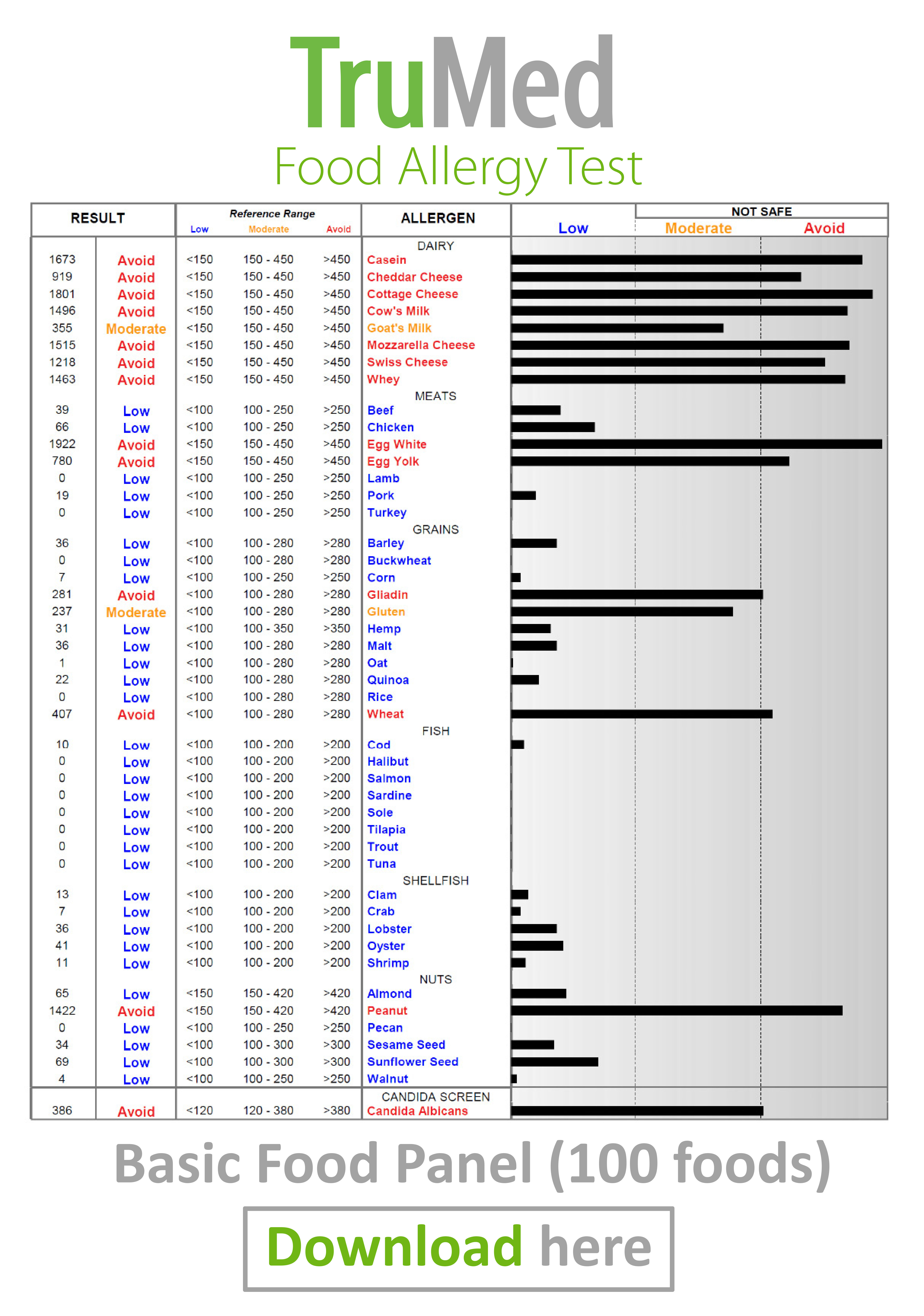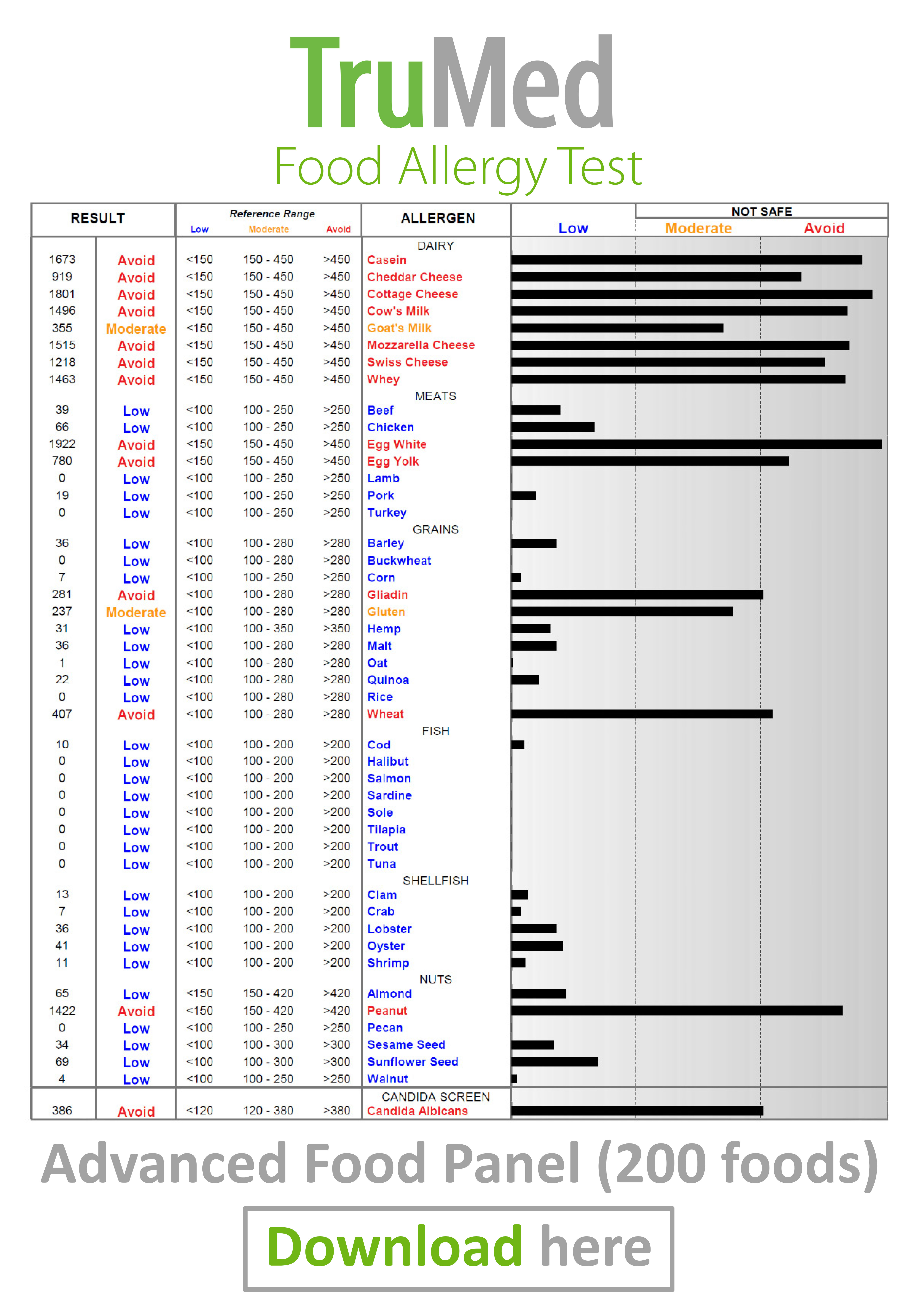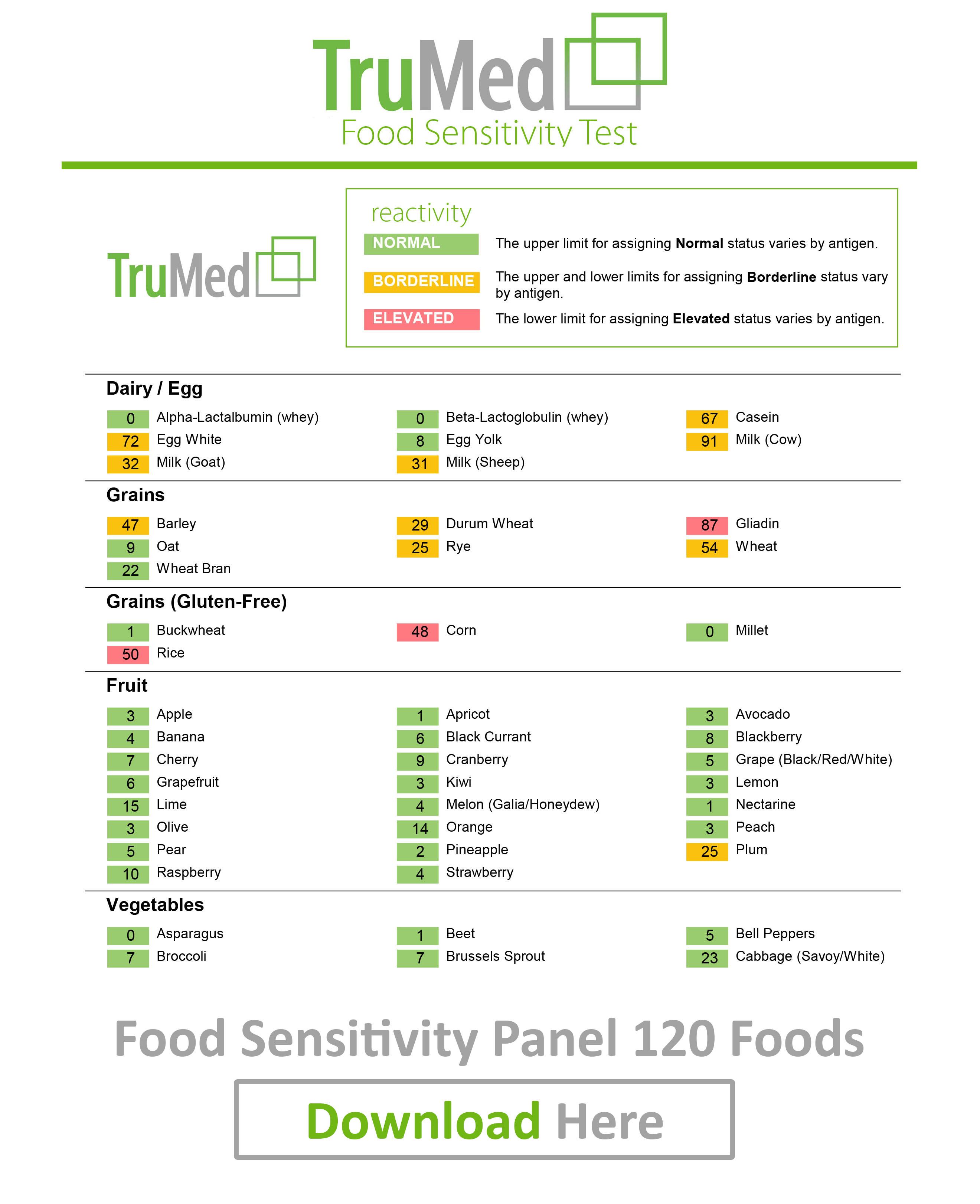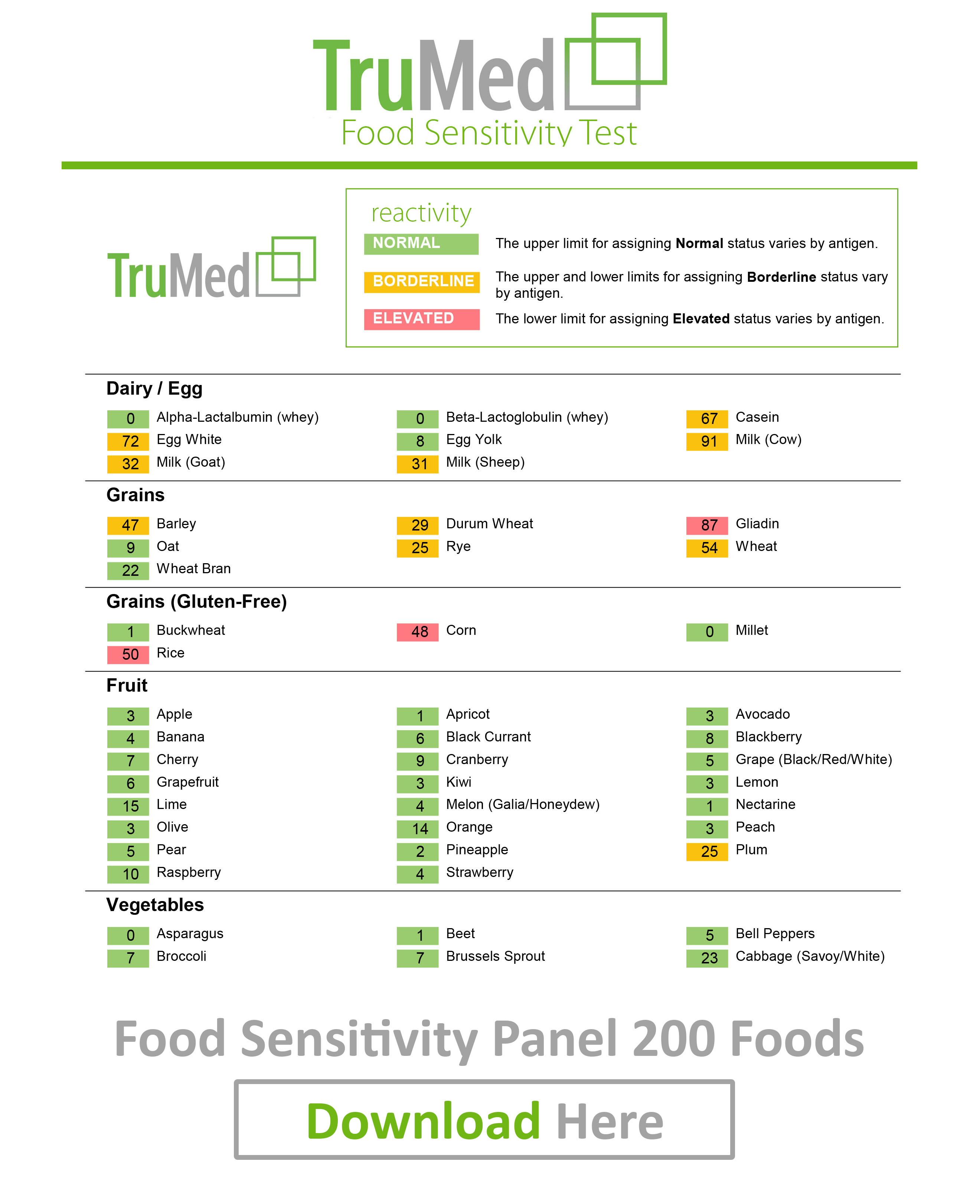Food Allergy & Sensitivity testing in Edmonton and areaTruMed offers Edmonton both Sensitivity & Allergy Testing
Our clinic has a special focus in Food Allergy & Sensitivity. We offer comprehensive panels to detect if you’re allergic or sensitive to hundreds of foods. Samples collected at the clinic are sent for analysis with results in just a few weeks.
Curious about testing? 780 757-8378 Visit our Food Sensitivity Section We proudly offer Edmonton comprehensive testing with clinical support We can test reactivity for up to 220 foods |
||||||
|
||||||
|
You have the option of booking an entire hour combining testing with a full 1 hour consultation to address non-allergy related concerns. This would allow appropriate time for testing other areas such as hormonal and thyroid function, and for Naturopathic recommendations for conditions not related to foods. |
||||||
|
||||||
Food Allergy FAQDo I need to have a consultation? Or can I just get the testing done?Your Food Allergy or Food Sensitivity test includes a brief consultation with one of our Naturopaths before testing and another brief consultation one month later to review test results. What's the difference between Allergy and Sensitivity testing?The difference lies in what the test is measuring. For Allergy testing your Naturopath at TruMed will test for a combined IgG4/IgE antibodies or separate IgG4 & IgE antibody test. For Food Sensitivity Testing, we tend to do a Total IgG (subsets 1-4) test. How do I decide whether I need Food Sensitivity Testing or Food Allergy Testing?Don't sweat it! Your TruMed Naturopath will help you decide on the best test for your particular situation as well as the right amount of foods to test. Our clinic offers Edmonton 3 separate testing methodologies. Does insurance cover the cost of testing?That of course depends on your particular insurance benefit plan but we've seen many patients over the years get partial and sometimes full coverage for their Allergy & Sensitivity tests - typically under "naturopath" or "testing" or both. TruMed Naturopath clinic also offers Edmonton direct billing so many of our patients leave the clinic paying nothing! What sort of benefits do patients get from testing?Luckily, our Naturopaths have run thousands of Sensitivity and Allergy tests in the Edmonton area. We've seen many patients benefit with regards to: digestion (IBS, gas & bloating), breathing (asthma, sinusitis, cough), skin issues (rashes, eczema, psoriasis). Often times we've seen energy increase and weight decrease once patients are put on a diet based off their Food Allergy or Sensitivity Test results. How often is Food Allergy or Sensitivity testing done?For most of our patients our Naturopaths don't recommend re-doing Allergy or Sensitivity Testing more often than every 5 years. Where is the testing done?It depends on which test your Naturopath runs. Food Allergy Testing is sent to Washington state or Vancouver for analysis. Whereas most of our Food Sensitivity Testing is sent to Calgary for analysis How long does it take to get the test results?It depends on which test is run. Hypoallergenic DietsTraditionally, "hidden" food allergies can usually be unmasked by means of an elimination diet, followed by individual food challenges. For many years this was considered the "Naturopathic gold standard." After a patient has been on a Naturopath prescribed allergen elimination diet for usually 4 weeks, chronic symptoms often disappear as the quantity of antibodies in the blood reduces over time (the half life of IgG antibodies is 3 weeks so sometimes it takes up to 3 weeks to see substantial change for this reason). The diet is usually structured by avoiding the top allergens: dairy, egg, gluten, corn, caffeine, red meat, soy, night shades, peanut, banana, strawberries, citrus fruit and often times, any food that a patient consumes more than three times weekly. Your Naturopath will assess your diet diary and make recommendations on what is a likely contributor. The most extreme hypoallergenic diet our Naturopaths work with is the Carnivore diet. After 4 weeks, assuming the patient is feeling substantially better, foods are re-introduced every 3-4 days in a systematic fashion to figure out which of the removed foods were the offenders. This method is cost effective (no test costs involved) and can be executed quickly but patient compliance is low. Our Naturopaths tend to recommend running comprehensive testing and simultaneously removing the top 3 suspected allergens while we await test results. One factor that we see come up frequently is individual reactivity to non traditional allergens. Detection of idiosyncratic reactions through testing is one reason our Naturopaths tend to run Allergy & Sensitivity testing frequently. Our Naturopathic doctors find that the "follow through" on removals is dramatically better once patients have their test results in hand. Seeing the "hard copy" results seems to be a strong motivating factor for a lot of patients to take the foods out and keep them out for long periods of time. |
||||||
|
|
||
|
5,286 patients took a food sensitivity test (looking at 113 foods) and questionnaires were issued three months after. 21.8% reported high benefit, 29.9% reported considerable benefit and 20.3% reported moderate benefit. The concerns that improved were 38% gastrointestinal, 13.7% Anti-gliadin and anti-casein IgG antibodies were found to be higher in those with autistic spectrum disorders (ASD). Furthermore, intestinal permeability was increased in 25.6% of patients with ASD compared to 2.3% of healthy children. Our Naturopaths always include Food Sensitivity Testing in our Autistic treatment protocols. Thirteen children were recruited to the experimental group and nine to the control group and the study group removed eggs & dairy for 8 weeks. At our Edmonton office, we've run thousands of Food Sensitivity Tests and dairy and eggs are by far the two top reactive foods. 21 patients diagnosed with migraine and IBS were tested with IgG Food Sensitivity tests covering 270 foods. They were then placed on a diet based off of their individual results for 6 weeks or a provocation diet before being crossed over. Migraines and IBS are two of the top reasons our Naturopaths run Food Sensitivity Testing in our Edmonton patients. Food sensitivity IgG antibodies were looked at in 30 obese and in 30 normal weight children in relation to arterial thickness and inflammation. Obese children showed a highly significant increase in carotid artery thickness, elevated CRP values (indicative of systemic inflammation) and IgG antibodies against foods compared to normal weight kids. In stubborn weight loss cases, our Naturopathic Doctors frequently find that consumption of sensitive foods is an important hindrance to weight loss at our Edmonton office. Dixon tested 114 consecutive patients IgG antibodies to foods (via RAST) - the number of foods tested ranged from 10 to 15. 80 patients eliminated the foods partially or completely and underwent follow-up of 6 to 22 months. Top improved symptoms were: diarrhea, cramps, cough, headache, nausea, burping, hoarseness/throat clearing, nasal drainage, fullness in ears, asthma, sinus headache, gas, itchy eyes, sneezing, fatigue after meals, ringing in ears, skin rash, chronic fatigue and itchy skin. At our office, we've seen all discussed symptoms improve in our own patients after Food Sensitivity Testing. IgG levels were measured with a 120 Food Sensitivity Test in children aged 7 - 15 with headaches. One IgG food was eliminated in each 6 week visit. Cow's milk, Egg White & Gluten were of the most common. Out of 14 patients, 11 completely resolved and 2 improved between 50 and 90%, and one had no food triggers identified. Our Naturopathic doctors take a similar approach with headaches and migraines in our Edmonton patients and identify both IgG Food Sensitivities and possible vasoactive foods. Twenty-three participants from athletic teams were put on a 14-day IgG Food Sensitivity based food elimination diet and 300-meter run times and mental capacity questionnaires were then analyzed. Change in 300-meter run time did not reach statistical significance however, academic qualities of listening, information processing, concentration, and memory appeared to improve. Our office has seen cognitive improvements after elimination of foods found on Sensitivity Testing; it's frequently used in our ADD/ADHD patients. Our Naturopaths have over a decade of Food Sensitivity experience |
|
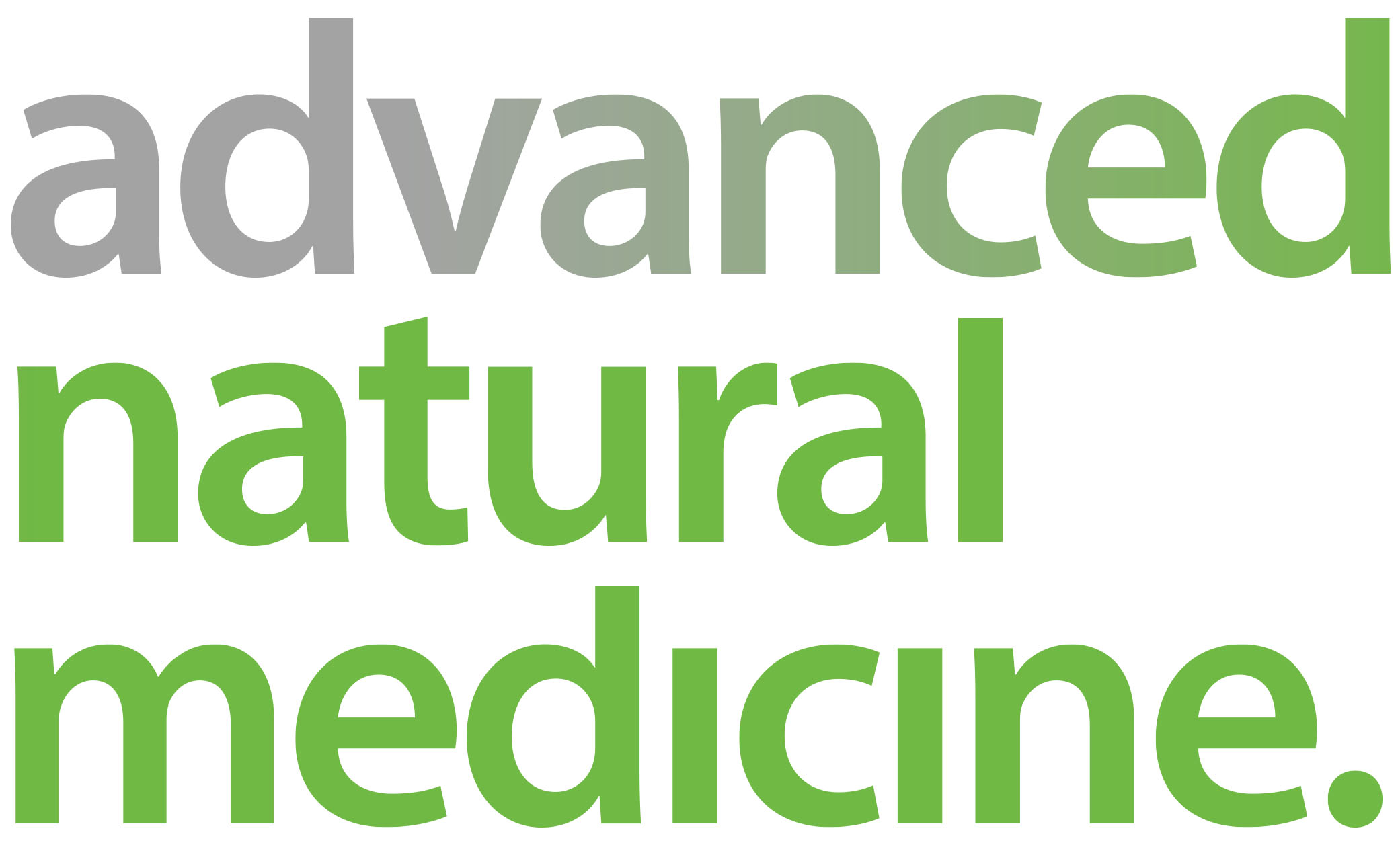
Interested in Testing?
780-757-8378
